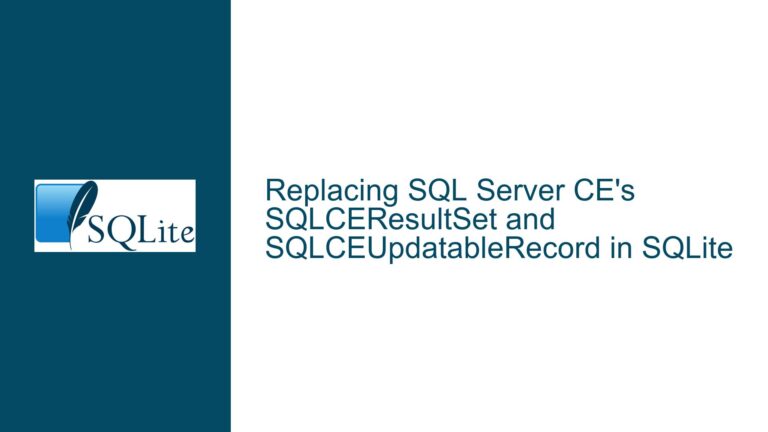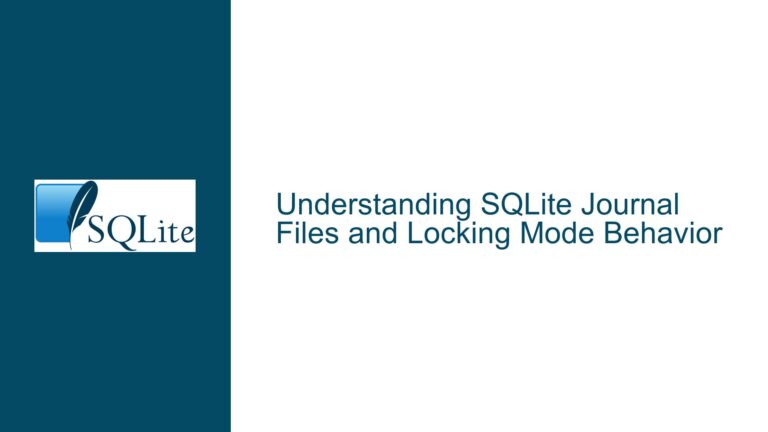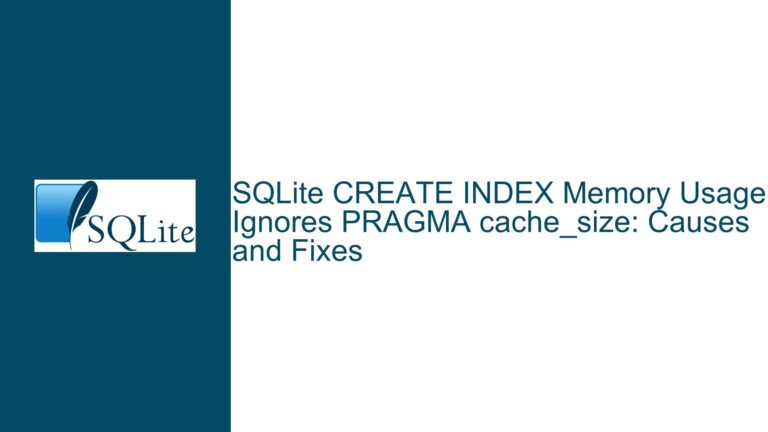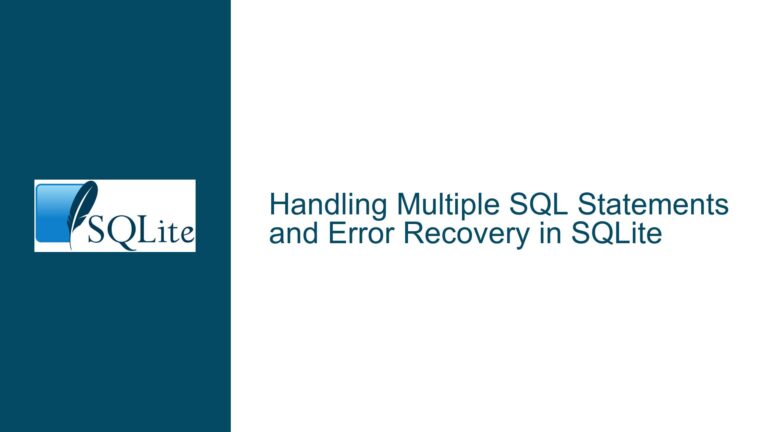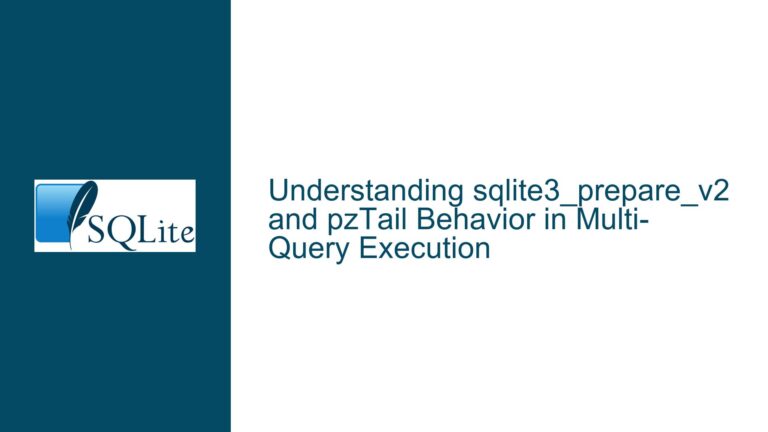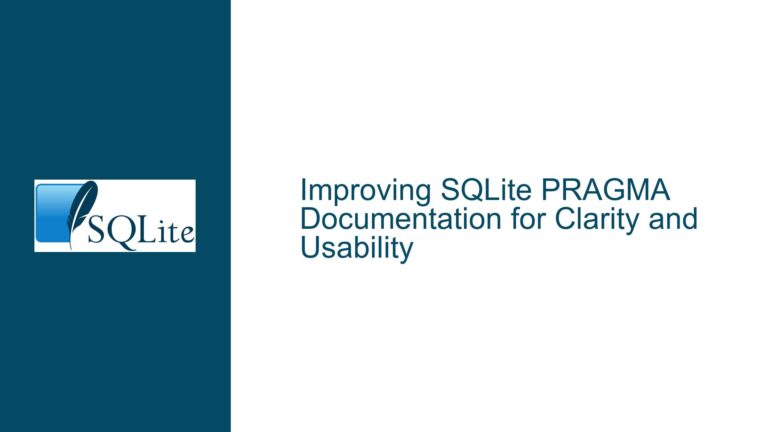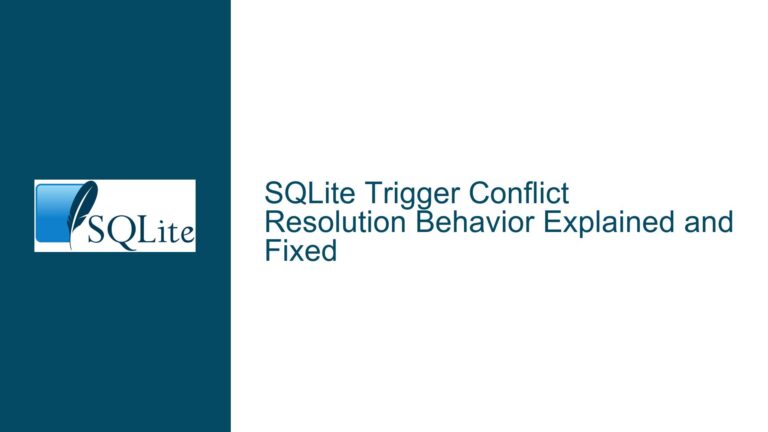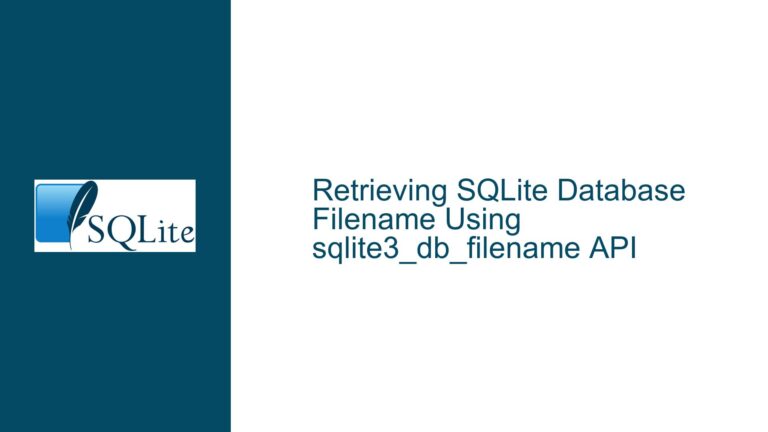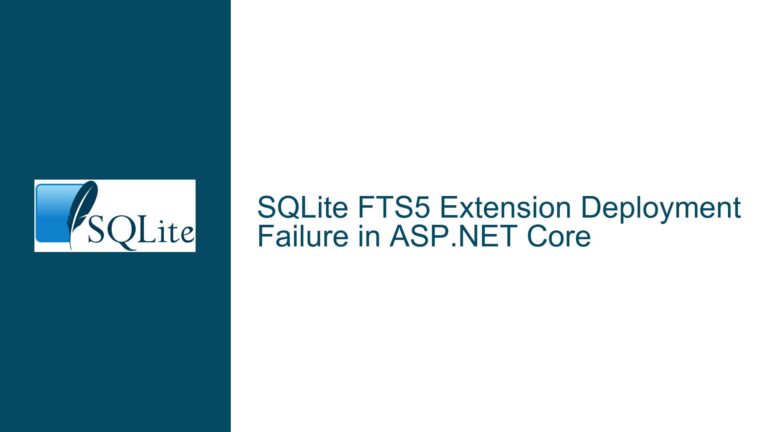Replacing SQL Server CE’s SQLCEResultSet and SQLCEUpdatableRecord in SQLite
Understanding SQLCEResultSet and SQLCEUpdatableRecord in SQL Server CE SQL Server Compact Edition (SQL Server CE) is a lightweight, embedded database engine that provides a subset of the features found in the full SQL Server. Two of its key components are the SQLCEResultSet and SQLCEUpdatableRecord classes, which are used for managing query results and updating records,…
